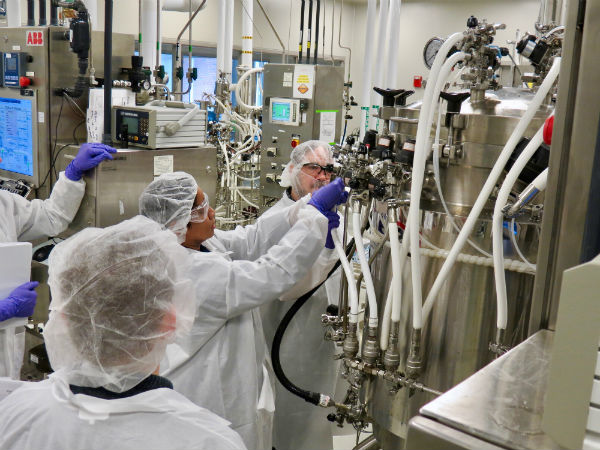
NC's Life Sciences Manufacturing Jobs Rise 11% in COVID-Wracked 2020

The life sciences are breathing life into North Carolina’s economy.
As the COVID-19 pandemic slammed economies and lives around the world in 2020, taking a huge toll in joblessness, life sciences manufacturing companies in North Carolina expanded their collective workforce by more than 11%.
The annual year-end analysis by the North Carolina Biotechnology Center’s Life Science Intelligence team revealed that 30,181 people were employed in life sciences production and manufacturing companies at year-end 2020, compared to 27,110 a year earlier. They make an expanding array of products, including small-molecule pharmaceuticals, monoclonal antibodies, industrial enzymes, vaccines, and cell- and gene-based therapies.
About 37,000 additional life sciences workers statewide were employed in non-manufacturing sites, such as laboratory research facilities. Providing that employment is an all-time record 775 life sciences companies, plus some 2,500 companies providing support functions such as health services and wellness programs. All told, the life sciences account for 224,000 jobs statewide according to a report from TEConomy Partners.
It results in $84 billion in annual economic activity for the state, including $2.3 billion in state and local taxes, thanks to the sector’s average annual salary exceeding $97,000 – more than twice that of the state’s overall private-sector salary.
The U.S. Department of Labor’s December 2020 jobs report showed that the South is leading the nation in its labor market recovery from the pandemic shock, adding jobs in numerous sectors, including manufacturing. Job losses, however, grew in the Midwest, West and Northeast.
North Carolina’s robust life sciences growth was highlighted by the $2 billion in investment announcements logged in 2020, which will bring more than 3,500 new jobs to the state as those projects are built out. The state has become a global hub in the nascent cell- and gene-therapy space, as it has been for decades in pharmaceutical manufacturing and contract research and testing.
Bottom line: North Carolina is seeing a flurry of training and hiring to keep up with demand. A recent “Window on the Workplace” study projected 5,000 new jobs would need to be filled by the life sciences sector by 2025.
Already, however, that is beginning to appear too conservative. Because North Carolina intends to keep building on its growing reputation as a global life sciences leader.
